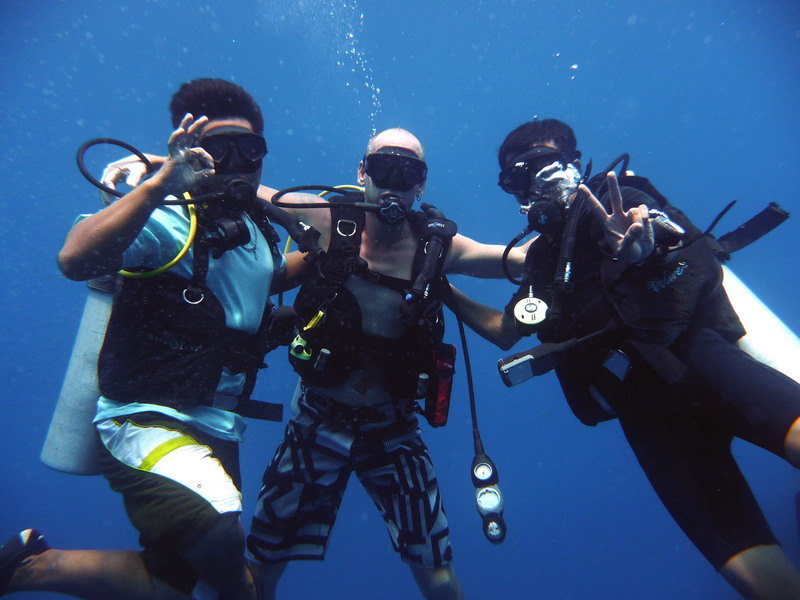Most people do not remember what they had for dinner two nights ago which only serves to highlight the absurdity of trying to safely scuba dive after a lengthy lapse in diving activity. Scuba diving requires proficient knowledge of dive equipment, climatic conditions, emergency maneuvers and navigational skills.
All of these skills become dull without regular experience and continuous education to keep them sharp. Before taking off on a scuba excursion after a long absence from the hobby, it is advisable by dive experts to take a refresher dive course to ensure a safe, comfortable and more enjoyable dive experience. Here are some tips for taking a refresher scuba diving course.
Take a Comprehensive Refresher Dive Course
When considering a dive refresher course, one should make every effort to take the comprehensive course that includes review of both classroom theory and open water instruction. The classroom theory review is important because it presents divers with relevant topics used in every dive situation.
Some of these topics include pre dive assessments, the use of dive tables, and safe descent and ascent procedures. The in water skills instruction ensures that divers can apply classroom theory to the open water environment. The instructor will also likely review with students all aspects of equipment use and application of emergency procedures.
Bring Your Dive Buddy to Class
People who attend refresher dive courses with the intention of going on a dive vacation with their favorite dive buddy should encourage their friend to take the scuba review course as well. It is important that both parties know the rules before going out on an underwater experience. Even if the dive buddy remains current with his or her skills, it is best for both parties to learn the other’s diving style.
It is especially important that dive buddies practice their in water, emergency procedures together. Knowing how to effectively signal and communicate with one’s dive buddy allows divers to respond quickly during emergency situations; acting fast sometimes means the difference between becoming a victim of a terrible accident or avoiding one altogether.
Review Instructional Materials for Open Water Scuba Diving Theory
It may not seem necessary to review the written materials before going to class for a scuba diving refresher course, but it helps ensure that one is prepared for the class and that no time is wasted studying concepts in class that one could master at home. Normally, the instructor will provide a test at the beginning of the course to determine one’s current aptitude of fundamental dive concepts.
If one does not remember any of the fundamentals of dive theory, the instructor will have to start from the beginning and cover concepts that the person could have studied before coming to class. If the diver had studied some of the theory elements before going to class, the instructor could spend more time concentrating on more important dive concepts. This usually equates to more time in the water which is always nice. A great resource for home study of open water dive concepts is the PADI Open Water Refresher Book.
Find a Refresher Diving Course Through Official Channels
The two main dive certification organizations for scuba divers are PADI and SSI. PADI does a great job of advertising their courses and affiliated dive schools and shops. One can find an officially endorsed refresher dive course by visiting the PADI website and utilizing one of their authorized dive schools.
There is no shame in admitting the need for a review of the fundamentals of scuba diving. After all, no one can remember everything without the benefit of regular practice. The key is recognizing this fact, obtaining the necessary training and enjoying every bit of time in the water.
Joshua Teh has been diving for 8 years and trains new divers in his free time. For more professional tips and diving lessons, he recommends clicking here.
























